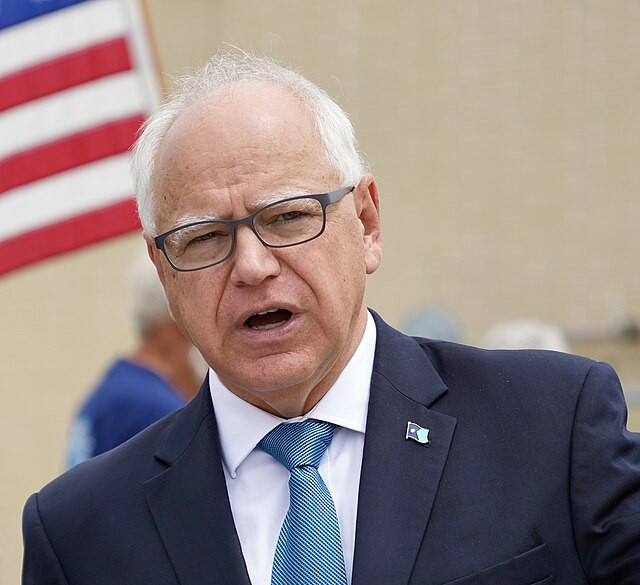Russian operatives have been identified as the source behind a disinformation campaign aimed at smearing Minnesota Governor Tim Walz, who is also the Democratic vice-presidential nominee. U.S. intelligence officials confirmed Tuesday that Russia was behind false claims circulating on social media, which falsely accused Walz of inappropriate behavior during his earlier career as a high school teacher and football coach.
The disinformation campaign, which involved fabricated posts and manipulated videos, is seen as part of a broader effort by Russia to influence the outcome of the 2024 U.S. presidential election. Intelligence analysts noted that Russian influence actors created and amplified the content, including an artificial intelligence-generated "deepfake" video, which purported to show a former student of Walz making allegations against him. However, the actual former student, when interviewed by The Washington Post, stated that the claims were entirely false, adding that he had never met the future governor.
This campaign is consistent with past Russian tactics of using disinformation to undermine U.S. elections. Morgan Finkelstein, a spokesperson for the Harris-Walz campaign, condemned the foreign interference. "We condemn in the strongest terms any effort by foreign actors to interfere in U.S. elections," Finkelstein stated. He also criticized the ease with which false narratives can gain traction online, especially as AI tools make it easier to fabricate such content.
The social media posts targeting Walz appeared on the platform X, formerly known as Twitter, and quickly went viral, reaching millions of views. Much of the content was shared by pro-Trump accounts and conspiracy theorists, including some associated with the QAnon movement. A single post from one such account garnered more than 4 million views before it was deleted. The Office of the Director of National Intelligence (ODNI) highlighted several signs of manipulation in the disinformation, such as discrepancies in fabricated emails and manipulated video content, which are trademarks of Russian influence operations.
This particular effort to smear Walz is part of a larger Russian strategy to undermine the Democratic ticket and sow discord in the U.S. political landscape. Russian operatives have been accused of using a variety of methods to disrupt elections, including fake whistleblower videos, fabricated news stories, and disinformation websites designed to resemble legitimate news outlets. These tactics aim to cast doubt on the integrity of U.S. elections, regardless of the outcome.
Earlier this year, U.S. intelligence exposed another Russian operation in which a fake video claimed that Vice President Kamala Harris had been involved in a hit-and-run accident in 2011-a baseless claim that was widely circulated on a fabricated website posing as a local TV station. No such incident ever occurred, and the website was a complete fabrication. Researchers from Clemson University's Media Forensics Hub have been tracking the Russian propaganda group Storm-1516, which is believed to be behind this and other recent disinformation campaigns.
The U.S. intelligence community has repeatedly warned that foreign adversaries, including Russia, Iran, and China, are seeking to exploit divisions within the American electorate. As Election Day approaches, these efforts are expected to intensify. The ODNI said that Russia is particularly interested in undermining the integrity of the election and has been preparing to exploit any post-election controversies that may arise. "Russia believes election controversies distract and weaken the United States," an ODNI official said during a briefing on Tuesday.
The smear campaign against Walz is part of this broader Russian goal. While Russian operatives are expected to continue pushing narratives that question the election's integrity regardless of the outcome, intelligence officials suggest they may become more aggressive if the Democratic ticket wins. The ODNI also noted that Russian operatives are likely to use similar disinformation tactics to foment unrest, possibly stoking threats toward election workers and amplifying protests.
In the past, Russia has coordinated with other foreign actors, such as Iran, to influence U.S. elections. In a separate case, Iranian operatives reportedly attempted to steal internal Trump campaign documents and used covert social media campaigns to undermine the former president's candidacy. Such actions demonstrate the global scale of election meddling efforts.






